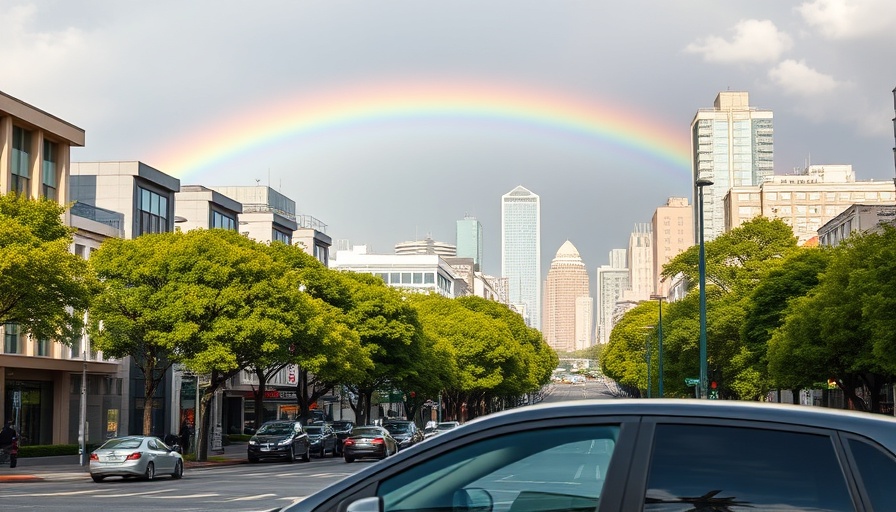
Embracing Nature's Lessons: The Wild Garden's Wisdom
In the chaos of our modern lives, it’s easy to overlook the quiet messages that nature has to offer. A wild garden, flourishing in untamed beauty, serves not just as a feast for the eyes, but as a stunning metaphor for life itself. For many of us, especially those coping with challenges such as mental health issues, poverty, or youth crime, the wisdom to be found in nature can act as a catalyst for resilience and empowerment.
1. The Beauty of Imperfection: Embracing Our Flaws
A wild garden thrives on its imperfections. Crickets chirp, flowers bloom out of mere cracks in the soil, and weeds add to its charm. Just like these spontaneous gardens, we too should embrace our flaws. Young people struggling with self-efficacy, especially in tumultuous environments, can find reassurance in nature’s diversity. The garden reminds us that different is beautiful, and every creature has its purpose, helping to combat negative thought patterns commonly known as thinking too much.
2. Lessons on Resilience: Growth Amidst Adversity
Take a moment to gaze at a wild garden bursting with life. Each plant has its unique story of survival—some resiliently adapt, while others thrive in seemingly hostile conditions. Resilience reflects the journey many of us endure, from struggling with HIV to overcoming the daily obstacles of life in South Africa. Wild gardens teach us that even in the most unfavorable circumstances, growth is possible. This idea resonates deeply, especially for families facing hardships, inspiring a sense of empowerment through change.
3. Mindfulness and Meditation: Nature’s Therapeutic Tools
Engaging with nature offers invaluable therapeutic benefits. People often overlook the correlation between nature and mindfulness, a method that promotes mental health and stress reduction. By immersing oneself in a wild garden—taking deep breaths of fresh air, feeling the texture of leaves, or even listening to soothing sounds of nature—one can practice mindfulness. Incorporating these moments of meditation into daily life can create a significant shift in perspective, making each individual better equipped to handle their respective struggles.
4. The Power of Community: Connecting with Others
A wild garden is filled with life, interdependence, and collaboration. It flourishes not just through individual plants but through the ecosystem it creates. Much like a strong community, support systems can emerge from the wildest of gardens. As South Africa faces rising youth crime, focusing on community building can undo some of the harmful cycles. Establishing a supportive network among friends, families, and professionals can nurture personal growth and enhance resilience.
5. Finding Purpose: Nature as an Inspiration
Perhaps one of the most touching messages from the wild garden is the inherent connection between nature and our quest for purpose. Witnessing life’s cycles serves as a powerful reminder—that each season brings its own essence, and who we are evolves continuously, just like the wild garden. For the youth and women battling life’s adversities, tapping into one’s passion can lead to extraordinary paths of self-discovery and empowerment, fueling their journey toward mental health.
Conclusion: Cultivating Hope and Action
In conclusion, the lessons learned from a wild garden are bountiful. Embracing imperfections, nurturing resilience amidst adversity, practicing mindfulness, fostering community connections, and discovering purpose are all vital messages that reach audiences across various backgrounds. Nature serves not just as a teacher but as a safe space for introspection and healing. As readers, let us cultivate hope for a brighter future, one where we can all grow into the best versions of ourselves.
 Add Row
Add Row  Add
Add 




 Add Row
Add Row  Add
Add
Write A Comment